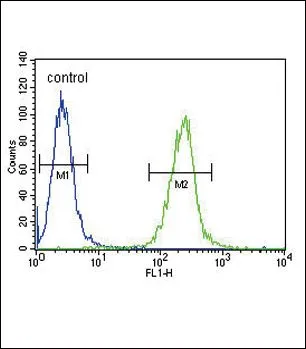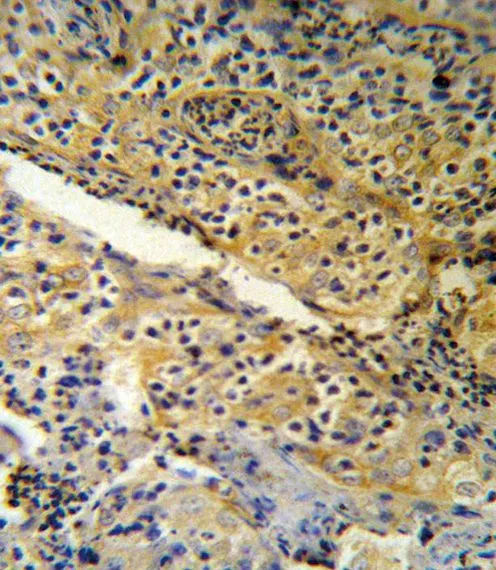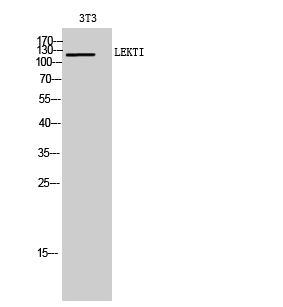
FACS analysis of A2058 cells using GTX81680 SPINK5 antibody, N-term. Green : primary antibody Blue : negative control
SPINK5 antibody, N-term
GTX81680
ApplicationsFlow Cytometry, Western Blot, ImmunoHistoChemistry, ImmunoHistoChemistry Paraffin
Product group Antibodies
ReactivityHuman
TargetSPINK5
Overview
- SupplierGeneTex
- Product NameSPINK5 antibody, N-term
- Delivery Days Customer9
- Application Supplier NoteWB: 1:1000. IHC-P: 1:10-1:50. FCM: 1:10-1:50. *Optimal dilutions/concentrations should be determined by the researcher.Not tested in other applications.
- ApplicationsFlow Cytometry, Western Blot, ImmunoHistoChemistry, ImmunoHistoChemistry Paraffin
- CertificationResearch Use Only
- ClonalityPolyclonal
- ConjugateUnconjugated
- Gene ID11005
- Target nameSPINK5
- Target descriptionserine peptidase inhibitor Kazal type 5
- Target synonymsLEKTI, LETKI, NETS, NS, VAKTI, serine protease inhibitor Kazal-type 5, LEKTI isoform, lympho-epithelial Kazal-type-related inhibitor, lymphoepithelial Kazal-type-related inhibitor
- HostRabbit
- IsotypeIgG
- Protein IDQ9NQ38
- Protein NameSerine protease inhibitor Kazal-type 5
- Scientific DescriptionThis gene encodes a multidomain serine protease inhibitor that contains 15 potential inhibitory domains. The encoded preproprotein is proteolytically processed to generate multiple protein products, which may exhibit unique activities and specificities. These proteins may play a role in skin and hair morphogenesis, as well as anti-inflammatory and antimicrobial protection of mucous epithelia. Mutations in this gene may result in Netherton syndrome, a disorder characterized by ichthyosis, defective cornification, and atopy. This gene is present in a gene cluster on chromosome 5. Alternative splicing results in multiple transcript variants. [provided by RefSeq, Oct 2015]
- ReactivityHuman
- Storage Instruction-20°C or -80°C,2°C to 8°C
- UNSPSC41116161








